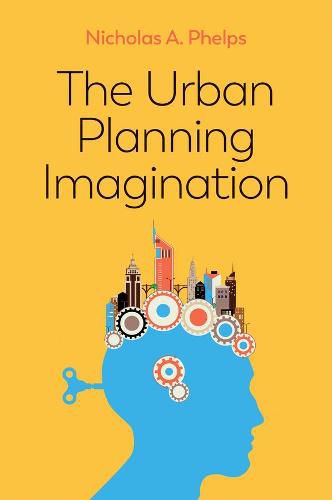Readings Newsletter
Become a Readings Member to make your shopping experience even easier.
Sign in or sign up for free!
You’re not far away from qualifying for FREE standard shipping within Australia
You’ve qualified for FREE standard shipping within Australia
The cart is loading…






Urban planning is not just about applying a suite of systematic principles or plotting out pragmatic designs to satisfy the briefs of private developers or public bodies. Planning is also an activity of imagination, with a stock of wisdom and an array of useful methods for making decisions and getting things done.
This critical introduction uncovers and celebrates this imagination and its creative potential. Nicholas A. Phelps explores the key themes and driving questions in the circulation of planning ideas and methods over time and across spaces, identifying the contrasts and commonalities between urban planning systems and cultures. He argues that the tools for inclusive urban planning are today, more than ever, not solely restricted to the hands of planning bodies, but are distributed across citizens, a variety of organizations (what Phelps calls ‘clubs’) and states. As a result, the book sets the ground for the new arrangements between these groups and actors which will be central to the future of urban planning.
By unsettling standard accounts, this book compels us towards more critical and creative thinking to ensure that the imagination, wisdom and methods of urban planning are mobilized towards achieving the aspiration of shaping better places.
$9.00 standard shipping within Australia
FREE standard shipping within Australia for orders over $100.00
Express & International shipping calculated at checkout
Urban planning is not just about applying a suite of systematic principles or plotting out pragmatic designs to satisfy the briefs of private developers or public bodies. Planning is also an activity of imagination, with a stock of wisdom and an array of useful methods for making decisions and getting things done.
This critical introduction uncovers and celebrates this imagination and its creative potential. Nicholas A. Phelps explores the key themes and driving questions in the circulation of planning ideas and methods over time and across spaces, identifying the contrasts and commonalities between urban planning systems and cultures. He argues that the tools for inclusive urban planning are today, more than ever, not solely restricted to the hands of planning bodies, but are distributed across citizens, a variety of organizations (what Phelps calls ‘clubs’) and states. As a result, the book sets the ground for the new arrangements between these groups and actors which will be central to the future of urban planning.
By unsettling standard accounts, this book compels us towards more critical and creative thinking to ensure that the imagination, wisdom and methods of urban planning are mobilized towards achieving the aspiration of shaping better places.